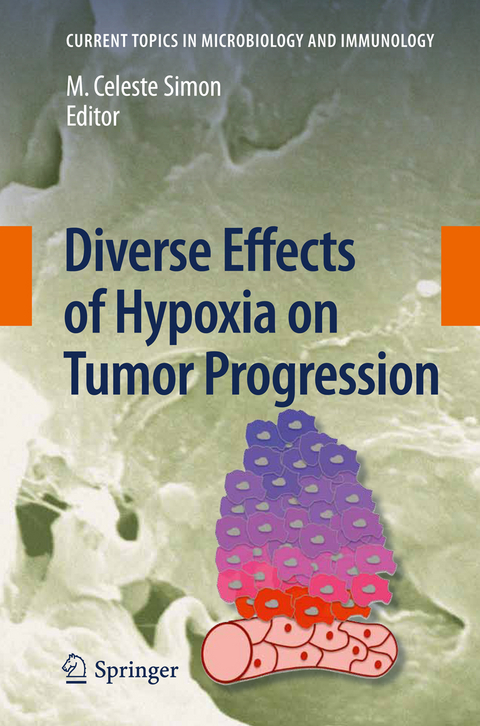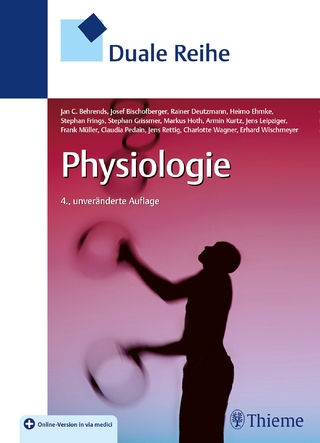
Diverse Effects of Hypoxia on Tumor Progression
Seiten
2012
Springer Berlin (Verlag)
978-3-642-26484-9 (ISBN)
Springer Berlin (Verlag)
978-3-642-26484-9 (ISBN)
Hypoxia, defined as reduced oxygen tension, is a common physiological phenomenon in both normal embryonic development and malignancy progression. Although severe hypoxia is generally toxic for both normal tissue and tumors, neoplastic cells gradually adapt to prolonged hypoxia though additional genetic and genomic changes with a net result that hypoxia promotes tumor progression and therapeutic resistance. Hypoxia promotes cancer progression by regulating various aspects of cancer biology, including radiotherapy resistance, metabolism, angiogenesis and invasion/migration
Hypoxia, defined as reduced oxygen tension, is a common physiological phenomenon in both normal embryonic development and malignancy progression. Although severe hypoxia is generally toxic for both normal tissue and tumors, neoplastic cells gradually adapt to prolonged hypoxia though additional genetic and genomic changes with a net result that hypoxia promotes tumor progression and therapeutic resistance. Hypoxia promotes cancer progression by regulating various aspects of cancer biology, including radiotherapy resistance, metabolism, angiogenesis and invasion/migration
Hypoxia, defined as reduced oxygen tension, is a common physiological phenomenon in both normal embryonic development and malignancy progression. Although severe hypoxia is generally toxic for both normal tissue and tumors, neoplastic cells gradually adapt to prolonged hypoxia though additional genetic and genomic changes with a net result that hypoxia promotes tumor progression and therapeutic resistance. Hypoxia promotes cancer progression by regulating various aspects of cancer biology, including radiotherapy resistance, metabolism, angiogenesis and invasion/migration
The HIF-2?-Driven Pseudo-Hypoxic Phenotype in Tumor Aggressiveness, Differentiation, and Vascularization.- Hypoxia and Hypoxia Inducible Factors in Cancer Stem Cell Maintenance.- Role of Carcinoma-Associated Fibroblasts and Hypoxia in Tumor Progression.- The Role of Hypoxia Regulated microRNAs in Cancer.- Oxygen Sensing: A Common Crossroad in Cancer and Neurodegeneration.- Hypoxia-Inducible Factors as Essential Regulators of Inflammation.- Hypoxia and Metastasis in Breast Cancer.
| Erscheint lt. Verlag | 5.11.2012 |
|---|---|
| Reihe/Serie | Current Topics in Microbiology and Immunology |
| Zusatzinfo | X, 146 p. |
| Verlagsort | Berlin |
| Sprache | englisch |
| Maße | 155 x 235 mm |
| Gewicht | 248 g |
| Themenwelt | Medizin / Pharmazie ► Medizinische Fachgebiete ► Onkologie |
| Studium ► 1. Studienabschnitt (Vorklinik) ► Physiologie | |
| Naturwissenschaften ► Biologie ► Genetik / Molekularbiologie | |
| Naturwissenschaften ► Biologie ► Zellbiologie | |
| Schlagworte | angiogenesis • Biology • cancer-associated fibroblasts • cancer stem cell maintenance • carcinoma • Cells • Glioblastoma multiforme • hypoxia-inducible factors • Metabolism • MicroRNAs • tissue • tumor progression |
| ISBN-10 | 3-642-26484-0 / 3642264840 |
| ISBN-13 | 978-3-642-26484-9 / 9783642264849 |
| Zustand | Neuware |
| Informationen gemäß Produktsicherheitsverordnung (GPSR) | |
| Haben Sie eine Frage zum Produkt? |
Mehr entdecken
aus dem Bereich
aus dem Bereich


